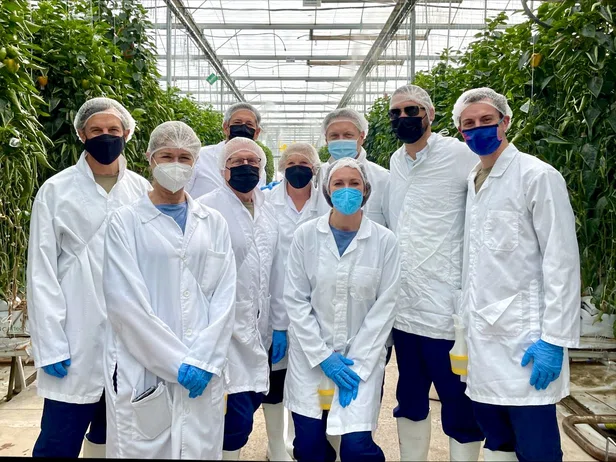
Close
result
Creating a strong partnership built on trust
Creating a strong partnership built on trust
Ben Conard
3 min read

There’s a lot riding on the relationship between principal and chief of staff. Ben Conard, chief of staff to the CEO at Fair Trade USA, describes how he and his principal developed a plan to build each other’s trust.
With a strong desire to make a global impact, I became part of an inspiring mission by joining the remarkable team at Fair Trade USA. My initial role with the organisation was Executive Communications Manager for the CEO. While I had no intention of becoming a chief of staff, it turns out that CEO-communication encompasses much of their world – speech writing, email drafting, workstream prioritisation, internal announcements, vision translation, sales, philanthropic development, relationship stewardship, Board of Directors management, and more.
Shortly after my arrival, our former chief of staff transitioned out of the organisation – and I quickly took on more of her responsibilities in support of our CEO. Fast forward one year, and I assumed the role of Chief of Staff to the CEO.
While I do, as a chief of staff, serve our entire team, my primary obligation and responsibility is to partner with and support my principal (our CEO). To do this successfully, the two of us knew we would need a plan to build each other’s trust.
So, we started with these five commitments to help build that foundation.
- Sign a partnership agreement
- Draft a 90-day plan
- Hold accountability checks
- Spend time together outside of work
- Travel together
1. Sign a partnership agreement
1. Sign a partnership agreement
My principal and I created and signed a document that outlines our work norms and behaviours. We included a list of partnership values, reminders, and guiding intentions. We organised our agreement into six sections:
- Check our egos at the door
- Practise servant leadership
- Maintain a united front
- Uphold mutual trust, respect, and confidentiality
- Assume positive intent
- Favour a bias toward action
While drafting this agreement, I wanted to also make sure that my professional development goals were taken into consideration and front of mind. I was eager to learn from a seasoned social entrepreneur and 20+ year founder. I knew that it was important to emphasise, from the beginning, this is a two-way street. My service to the organisation should help advance my goals, too. To this end, I built in a section titled: Ben’s Learning and Development Goals, that I asked my principal to sign as well. It includes the skills I want to master, the types of meetings I want to ride shotgun in, and the relationships I want to build.
2. Draft a 90-day plan
2. Draft a 90-day plan
Drafting a 30-60-90-day plan gave me a strong start in onboarding myself into the role for the first three months. After meeting with the executive team and key stakeholders, I used our CEO’s objectives and key results (OKRs) to map seven mission-critical workstreams. Each workstream included objectives, timing, people needed, and key results that would indicate a successful integration of the work into my role. In addition to rapid onboarding, I included a ramp for learning the necessary skills to be successful in the role – writing in my principal’s voice, learning our technology platforms, learning our business model, developing strong relationships with our CEO’s closest team members, and learning our CEO’s workstyle. A 90-day plan is your introduction to the organisation – and it's meaningful to get it right.
3. Hold accountability checks
3. Hold accountability checks
To course-correct any areas of work that need attention, I held regular accountability checks (weekly at first, then monthly, and quarterly thereafter). I added this to my OKRs to help keep me on track. Before doing an accountability check with your principal, I recommend taking their temperature. Do you both have the energy you need to check in? Are you distracted by a fire that needs to be put out? Ensure you make appropriate space for this. If necessary, ask your principal: ‘Are you in a place to receive feedback right now?’ Take their answer seriously and proceed if they are and table it if they aren’t. Even if your principal isn’t available for regular check-ins, walk through your 90-day plan by yourself and ‘green-yellow-red’ each section. Plan to bring up sections scored yellow or red with your principal when you’re both ready.
4. Spend time together outside work
4. Spend time together outside work
Building trust takes time. To accelerate the building of trust and to help deepen our relationship, I prioritise spending time in-person with my principal outside work at least once a month. Here’s how we organise our time together:
1. Work
(Okay, we do some work together still.) We spend about one hour focusing on the most critical tasks that would otherwise distract us during our next two activities.
2. Life
We go for a walk together around the lake or in the neighbourhood, catching each other up on our lives, family, and how we’re doing.
3. Play
We both like to play tennis, so it’s a great outlet for the two of us to be active and engage in some friendly competition. If we’re not up for an activity (or if it’s raining), we’ll share a meal together.
Time together outside of work is well worth the investment.

5. Travel together
5. Travel together
It was also important for me to see my principal on the road and in action. I committed to regularly asking these questions to ensure we could hit the road together. Are they giving a big speech at a conference? Ask if you can join the audience. Are they doing a site visit with a customer? Pitch the case to ride shotgun. Are they visiting business operations? Ask to join them. Seeing your business and your principal in action is a priceless way to build meaningful rapport and shared memories.
This year, our CEO, the Leadership Team, and I travelled to Mexico together to visit Fair Trade Certified tomato, cucumber, and pepper farms. The ultimate team building!
As a chief of staff, building a framework to foster trust is the key to a successful relationship with your principal. As you begin your chief of staff journey, sign a partnership agreement, draft a 90-day plan, hold accountability checks, spend time together outside of work, and travel with your principal. It will make all the difference.
Author Bio
Ben Conard
Chief of Staff at Fair Trade USA
Ben Conard serves as Chief of Staff to the CEO at Fair Trade USA, a nonprofit generating $1 billion of financial impact for farmers and workers in 51 countries.








